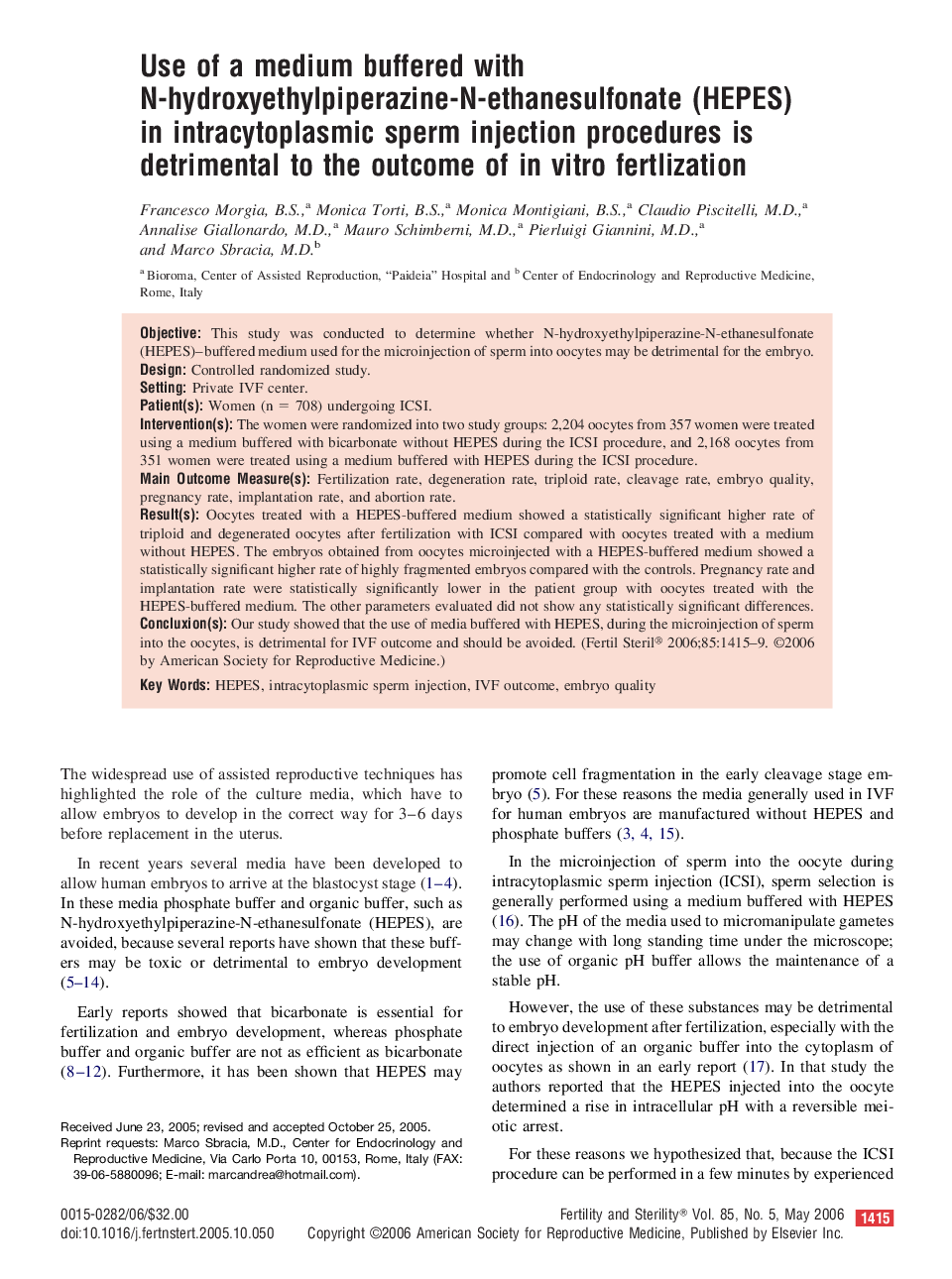| Article ID | Journal | Published Year | Pages | File Type |
|---|---|---|---|---|
| 3942302 | Fertility and Sterility | 2006 | 5 Pages |
ObjectiveThis study was conducted to determine whether N-hydroxyethylpiperazine-N-ethanesulfonate (HEPES)–buffered medium used for the microinjection of sperm into oocytes may be detrimental for the embryo.DesignControlled randomized study.SettingPrivate IVF center.Patient(s)Women (n = 708) undergoing ICSI.Intervention(s)The women were randomized into two study groups: 2,204 oocytes from 357 women were treated using a medium buffered with bicarbonate without HEPES during the ICSI procedure, and 2,168 oocytes from 351 women were treated using a medium buffered with HEPES during the ICSI procedure.Main Outcome Measure(s)Fertilization rate, degeneration rate, triploid rate, cleavage rate, embryo quality, pregnancy rate, implantation rate, and abortion rate.Result(s)Oocytes treated with a HEPES-buffered medium showed a statistically significant higher rate of triploid and degenerated oocytes after fertilization with ICSI compared with oocytes treated with a medium without HEPES. The embryos obtained from oocytes microinjected with a HEPES-buffered medium showed a statistically significant higher rate of highly fragmented embryos compared with the controls. Pregnancy rate and implantation rate were statistically significantly lower in the patient group with oocytes treated with the HEPES-buffered medium. The other parameters evaluated did not show any statistically significant differences.Concluxion(s)Our study showed that the use of media buffered with HEPES, during the microinjection of sperm into the oocytes, is detrimental for IVF outcome and should be avoided.
